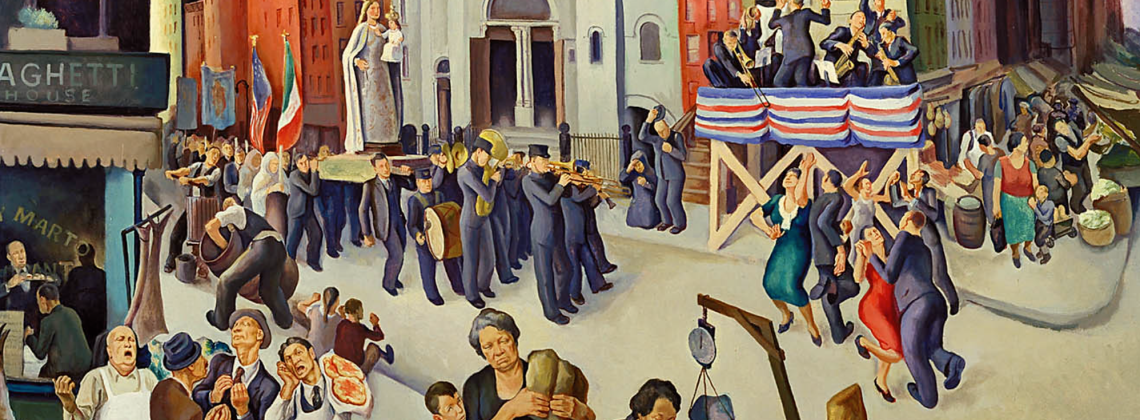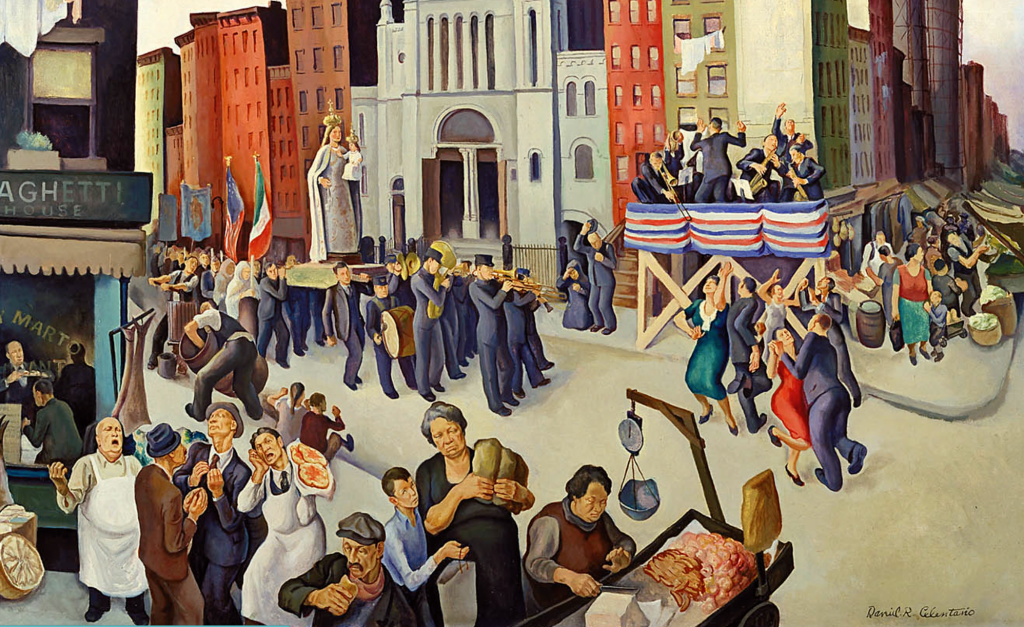

My great-grandfather was a Mediterranean sheepherder who fell in love and came to America for a better life
Last year I started writing a memoir. Due to other demands, I only managed to write one chapter. For my next several Current features I will be sharing excerpts from that chapter. Read the first installment here and the second installment here.—JF
Growing-up I heard endless stories about the exploits of my great-grandfather Fea. He was a sheepherder from an Italian village who came down from the mountains every year with his animals to visit the coastal town of San Felice. He took up temporary housing in a cave on the Mediterranean Sea and eventually met my great-grandmother, a native of the town. They got married and my great-grandfather left shortly thereafter for the United States, leaving his wife to give birth to my grandfather and his twin brother on the second floor of a Catholic convent. A few years ago I visited the building that used to hold that convent and saw the room where he was born. A local man told me that little had changed. My grandfather was three-years old in 1913 when he met his father for the first time. The meeting took place on a short flight of stairs located at the back of the Great Hall at Ellis Island. The Ellis Island records list the family name as “Fia.”
My great-grandfather, great-grandmother, and grandfather were part of the so-called “new immigration” of southern and eastern European poor who poured into the United States by the millions between 1880 and 1920. My great-grandfather found employment as a foreman for a company that built bridges. He worked on the construction of the original Goethals Bridge connecting Elizabeth, New Jersey to Staten Island and on the Nicholson Bridge, the largest concrete structure in the world when it was completed in 1915. He and my great-grandmother Fea spoke no English. They eventually settled in West Orange, New Jersey, just outside of Newark.
My Italian grandmother’s family—the Arleos—arrived at Ellis Island from southern Italy around the same time. When my grandmother died in 2002, we found an autobiography she had scribbled out on several pieces of notebook paper. This amazing primary source describes a young Italian American woman navigating the tensions between the old world and the new in the 1920s and 1930s. For years I used that autobiography in a course on the American immigrant experience I taught at Messiah College.
My Grandma Fea was always ready to share lore from her days growing-up on Hester Street in New York City and West Orange as part of the greater New York Italian immigrant community. She had a theory for everything and did not hesitate to preach them as if they were scientific facts. Did you know that you can predict whether your child will be tall based on the size of his or her front teeth? I had big teeth and I ended up reaching 6’8.” I guess my grandmother was right about that!
Most of my childhood Sunday afternoons were spent at my Italian grandparents’ house. In the 1950s they left West Orange and pursued their own slice of the American dream in the form of four acres of land and a one-acre pond in the woods of Parsippany, New Jersey. My grandfather designed and built a house and a small cabin on the pond with a dock for swimming and an outdoor stove for cooking pasta. Both of my grandmother’s sisters and their husbands also made the move to Parsippany. They bought adjacent land and built their own houses on it, creating a small compound not unlike my mother’s side of the family on Turkey Mountain. Those three houses are still in the family. My grandmother ended her autobiography with the building of the house and cabin, and then closed with the words, “And we all had a great time.” It was perfect. There was nothing else that needed recording. They made it.
We spent most of our weekly trip to my grandparent’s house sitting at the dining room table and eating a full Italian meal of pasta and meat (meatballs, sausage, pork, and braciole), wine, a small chicken, salad, fruit and nuts, dessert, and coffee. Over the years my wife Joy has become an expert at reproducing my grandmother’s tomato sauce (we call it “gravy”) and my mother still makes her mother-in-law’s Italian cookies. Some of the old food traditions remain.
After dinner all my great aunts and uncles arrived from different points throughout northern New Jersey. Everyone sat in my grandparents’ living room drinking wine and beer (my grandfather was a Teamster who drove delivery trucks for several Newark breweries), arguing about politics, sharing old stories, telling jokes, and discussing the latest exploits of the Yankees, Mets, Giants, and Jets. When it was time for us to leave, my father would make my brothers and me walk through the room and kiss everyone goodbye. There was a lot of kissing in Italian culture. I hated this Old World ritual because I usually went home with a nose full of perfume and lipstick all over the side of my face. Today my dad is the only male I still greet with a kiss.
My father was a general contractor. On a typical 1970s evening, as the sky grew dark and I, an elementary school student, sat at the kitchen table doing my homework, the back door opened and we knew he was home. As he did every day, Dad stopped in the laundry room to take off his muddied work boots. He could have been covered with any number of substances, from dirt to paint to dried spackle. His hands were rough and gnarled. We kissed him hello, he went to the bathroom to “wash up,” and my family sat down to eat dinner.
Dad always came home tired. When I got older, I spent summers working with him. I learned the virtues of this kind of labor, but I also experienced the drudgery that came with laying concrete footings or loading a dumpster with refuse. I worked enough with my father to know that I did not want to do this for the rest of my life. Though he never told me so, I am sure that Dad probably didn’t want that for me either. As for my two brothers, one became a carpenter and the other a plumber.
My father was a large and powerful man, standing at 6’4.” He was a former U.S. Marine and a strict disciplinarian. I can recall many occasions standing next to my mom while she cooked dinner, apologizing profusely for whatever I had done or said to her earlier in the day and begging her not to tell my father when he arrived home. Sometimes this special pleading began at precisely the moment we saw the lights from my father’s truck pull into the driveway. Mom often accepted our penance and Dad never found out what happened. She probably thought the evening would be more peaceful that way. I don’t know what their marriage was like, and I don’t really want to know. I never thought about it as a kid. I think it’s safe to say that my father was an authoritarian patriarch. I am confident he would agree with that assessment. My mother was, and still is, a saint.
John Fea is Executive of Current
Image credit: Daniel Celentano: Festival, 1934